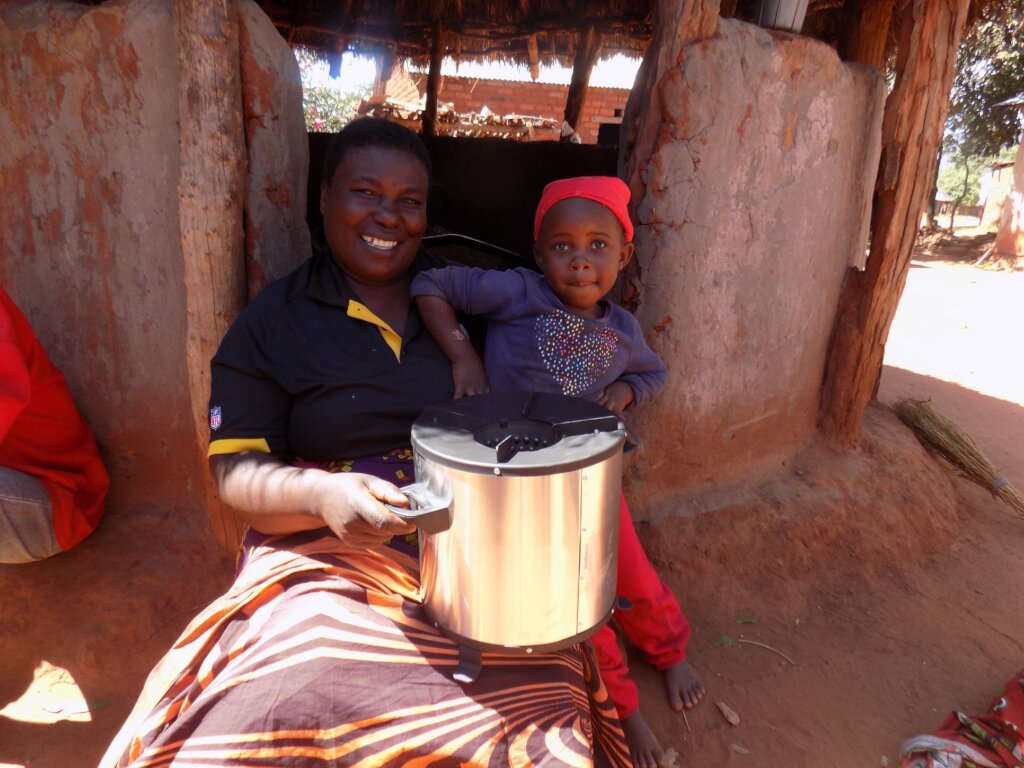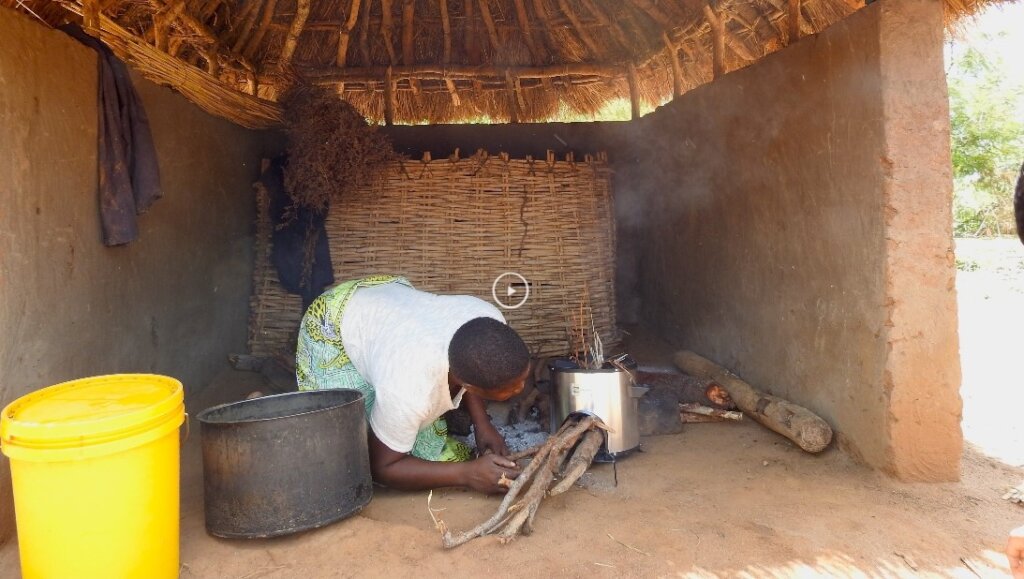By Francis Mbewe | Project Leader
Agness, a mother of seven children, resides in Chiparamba Village, Kasenengwa District, Eastern Province, Zambia. Like many households in the region, Agness's family relied on traditional cooking methods, which posed significant health and environmental risks. In 2024, Agness adopted an improved clean cookstove, and this report highlights the benefits her family has experienced since then.
Pre-Intervention Context
Prior to using the improved cookstove, Agness's household faced numerous challenges:
Indoor Air Pollution: Traditional cooking methods released hazardous pollutants, including particulate matter, carbon monoxide, and volatile organic compounds, into the home. This led to respiratory problems, particularly among children and women.
Fuelwood Collection: Agness spent considerable time collecting fuelwood, often traveling long distances, which took away from time that could be spent on other activities, such as childcare, farming, or income-generating endeavors.
Cooking Time and Efficiency: Traditional cooking methods were time-consuming, requiring Agness to spend several hours each day preparing meals.
Improved Clean Cookstove Intervention
Agness received an improved clean cookstove, designed to reduce fuel consumption, minimize indoor air pollution, and decrease cooking time. The stove features:
Efficient Combustion: Improved airflow and insulation enable more efficient combustion, reducing fuelwood consumption and emissions.
Reduced Emissions: The stove's design captures and reduces harmful pollutants, creating a healthier indoor environment.
Impact
Since adopting the improved cookstove, Agness's household has experienced significant benefits:
Improved Health: Reduced exposure to indoor air pollution has led to fewer instances of respiratory problems among family members, particularly children.
Time Savings: With faster cooking times, Agness can devote more time to other activities, such as childcare, farming, or income-generating endeavors.
Fuelwood Reduction: The improved cookstove has decreased fuelwood consumption, reducing the time and effort required for collection.
Economic Benefits: By reducing fuelwood consumption, Agness's household has saved money on fuel costs, which can be allocated to other essential expenses.
Environmental Impact: The reduced fuelwood consumption and lower emissions contribute to a more sustainable environment, aligning with broader conservation efforts.
Conclusion
The adoption of an improved clean cookstove has had a profound impact on Agness's household in Chiparamba Village. By reducing indoor air pollution, decreasing cooking time, and minimizing fuelwood consumption, the stove has improved the health, well-being, and economic stability of Agness and her family. This intervention serves as a model for the benefits of clean cookstoves in rural Zambia, highlighting the potential for positive change in the lives of vulnerable populations.
Project reports on GlobalGiving are posted directly to globalgiving.org by Project Leaders as they are completed, generally every 3-4 months. To protect the integrity of these documents, GlobalGiving does not alter them; therefore you may find some language or formatting issues.
If you donate to this project or have donated to this project, you can receive an email when this project posts a report. You can also subscribe for reports without donating.
Support this important cause by creating a personalized fundraising page.
Start a Fundraiser
